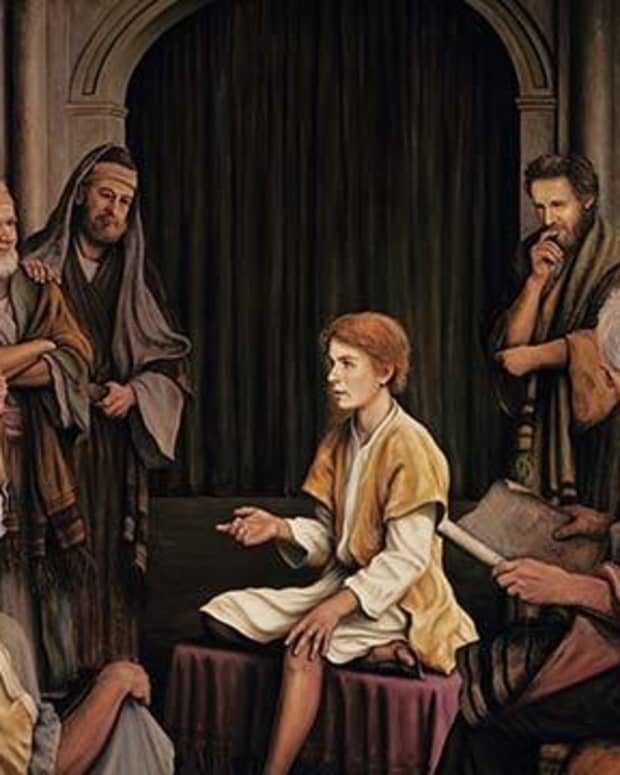Kevin O’Brien from the Society of Jesus writes the following about this practice:
“Ignatius was convinced that God can speak to us as surely through our imagination as through our thoughts and memories. In the Ignatian tradition, praying with the imagination is called contemplation. In the Exercises, contemplation is a very active way of praying that engages the mind and heart and stirs up thoughts and emotions.
Ignatian contemplation is suited especially for the Gospels…accompany Jesus through his life by imagining scenes from the Gospel stories. Let the events of Jesus’ life be present to you right now. Visualize the event as if you were making a movie. Pay attention to the details: sights, sounds, tastes, smells, and feelings of the event. Lose yourself in the story; don’t worry if your imagination is running too wild. At some point, place yourself in the scene.
Contemplating a Gospel scene is not simply remembering it or going back in time. Through the act of contemplation, the Holy Spirit makes present a mystery of Jesus’ life in a way that is meaningful for you now. Use your imagination to dig deeper into the story so that God may communicate with you in a personal, evocative way.”
It just so happens that today’s gospel reading was one of the passages used during the retreat. The invitation to practising Ignatian Contemplation with the passage is this:
“We ask the Spirit to show us what Jesus was like growing up. Accompany him as a friend, relative, or neighbour in Nazareth. Though fully divine, Jesus is also fully human. Notice, then, how Jesus grows into his humanity.
It doesn’t matter whether the details you supply are historically accurate. We are not reconstructing history. Instead, with the inspiration of the Holy Spirit, we are coming to know Jesus more intimately so that we can love him more dearly and follow him more closely.”
So, I thought I’d share with you what I wrote using this imaginative method of prayer:
I work in the temple, it’s been so busy with Passover, I was looking forward to a bit of rest – but then I met The Boy. Ordinary looking, but so very not ordinary.
He wanted to talk about God! Why not? That’s the best thing a boy could want, so I took him to where the men were debating. I don’t know what I expected but my goodness….his answers, his questions! The sophistication of his thoughts and understanding of God. So raw, so pure.
I think he would have talked all night but I needed to get home, and I hadn’t seen him stop to eat. I invited him home to eat with my wife and I, and then with seemingly no where to go he stayed overnight.
The next day we returned to the temple and started again. For nearly five days this continued. Of course, we asked him about his parents and he spoke of them with such love, but no indication of where they were. We were getting used to him, both in the temple and at home.
I couldn’t help but wonder if we might have gained a lodger, we’d have been more than happy for him to stay. But then on the fifth day a man dashed in, wild-eyed, a mixture of relief and rage:
“Jesus, where have you been?? How could you do this??”
“you should have known I’d be in my father’s house” the boy replied.
I saw the mother in the partitioned area, wringing her hands. I led the boy and his father over to her and the three embraced, although the boy still didn’t seem to understand he’d scared them half to death.
I invited them all back home, to begin their journey anew in the morning. As I passed by the room where the couple were sleeping I couldn’t help – God forgive me – but over hear what the mother said:
“We’ve become complacent Joseph, since our return from Egypt, we’ve got so used to him being a normal boy, it’s made us forget he’s anything but ordinary. We must hold him lightly, my love, he’s never truly been ours after all”.
I often wonder what she meant? And I wonder if I’ll ever hear from the boy again. I feel like there’s greatness in his future.
The exercise ends with the following prayer:
Lord Jesus, from the start
You invite ordinary people to come to where you live.
When they come, you welcome them
and call them to labour and rejoice with you.
You are the most beautiful among all men,
and I hardly believe you want me for your friend.
You are powerful, Lord.
Draw me more and more into your friendship
and lead me along the way you took with friends.
—Joseph Tetlow

